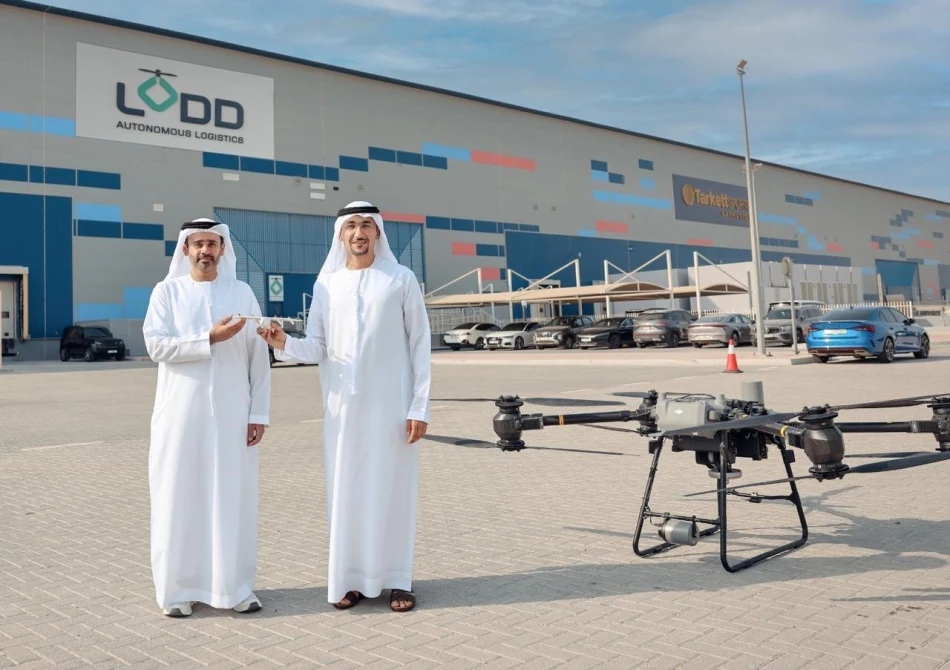
Abu Dhabi's Integrated Transport Center Oversees Drone Delivery Pilot Program
Abu Dhabi Takes Flight: Emirate Pioneers Commercial Drone Delivery in Middle East's Logistics Revolution
Abu Dhabi has successfully launched the Middle East's most advanced drone delivery trial, positioning itself as the regional leader in autonomous logistics while global e-commerce giants scramble to solve the last-mile delivery challenge. The emirate's Integrated Transport Center, in partnership with Load Autonomous, completed a breakthrough test flight that could reshape how goods move across urban landscapes in one of the world's most logistics-dependent economies.
The Technology Behind the Breakthrough
The successful trial involved a robotic-armed drone transporting packages from Al Samha area to KEZAD (Khalifa Economic Zone Abu Dhabi), utilizing advanced navigation systems that promise the precision and efficiency that traditional delivery methods cannot match. This isn't just another tech demonstration—it represents a fundamental shift toward autonomous supply chains that could cut delivery times from days to hours.
Dr. Abdullah Hamad Al Ghafli, Acting Director General of the Integrated Transport Center, witnessed the historic flight firsthand, marking a milestone that puts Abu Dhabi ahead of regional competitors like Dubai and Riyadh in the race to commercialize drone logistics.
Strategic Context: Why Abu Dhabi, Why Now
This initiative aligns with the Autonomous Smart Systems Council's broader strategy to establish Abu Dhabi as a global smart transportation hub. The timing is crucial: as Amazon struggles with drone delivery regulations in the US and European cities grapple with urban air mobility frameworks, Abu Dhabi is creating regulatory sandboxes that allow rapid innovation.
The emirate operates through a unified national platform for drone traffic management, streamlining approvals and ensuring compliance with safety standards—a bureaucratic efficiency that gives it a competitive edge over more fragmented regulatory environments elsewhere.
The Game-Changer: Meet "Heli" VTOL
Load Autonomous showcased their hybrid autonomous aircraft "Heli," a vertical takeoff and landing (VTOL) vehicle that represents the next evolution in aerial cargo transport. With a 250-kilogram payload capacity and 300-kilometer range, Heli combines electric motors with internal combustion engines—solving the battery limitation problem that has plagued electric aircraft development.
Market Implications
The aircraft's vertical takeoff capability eliminates the need for traditional airport infrastructure, potentially revolutionizing medium-range cargo transport across the Gulf region. For logistics companies and e-commerce platforms, this technology promises direct connections between distribution centers, bypassing congested road networks that currently bottleneck supply chains.
Economic Drivers Behind the Innovation
Rashid Matar Al Mannaei, CEO of Load Autonomous, highlighted the compelling economics: drone delivery can reduce package transit times from days to hours, a critical advantage as e-commerce growth accelerates across the Middle East. With regional online shopping expected to reach $50 billion by 2025, the pressure for faster, more efficient delivery solutions has never been greater.
This speed advantage becomes even more significant when considering Abu Dhabi's role as a logistics hub connecting Europe, Asia, and Africa. Companies that can move goods faster gain substantial competitive advantages in global supply chains.
Regional Competition and Global Context
While Singapore has tested drone deliveries in controlled environments and the UAE's northern emirates have experimented with medical drone transport, Abu Dhabi's comprehensive approach—combining regulatory framework, infrastructure development, and commercial partnerships—sets a new regional standard.
The initiative also positions Abu Dhabi ahead of Saudi Arabia's NEOM project and Qatar's smart city ambitions, demonstrating that incremental innovation in existing urban environments can outpace greenfield mega-projects.
Investment and Infrastructure Outlook
For investors and logistics companies, Abu Dhabi's drone delivery success signals a mature regulatory environment ready for scaled commercial operations. The emirate's approach of building unified management platforms and streamlined approval processes creates the foundation for rapid industry growth.
The successful trial likely accelerates investment in autonomous logistics infrastructure across the Gulf, as neighboring cities rush to avoid falling behind in what could become a defining competitive advantage for 21st-century urban economies.
Most Viewed News

 Sara Khaled
Sara Khaled






